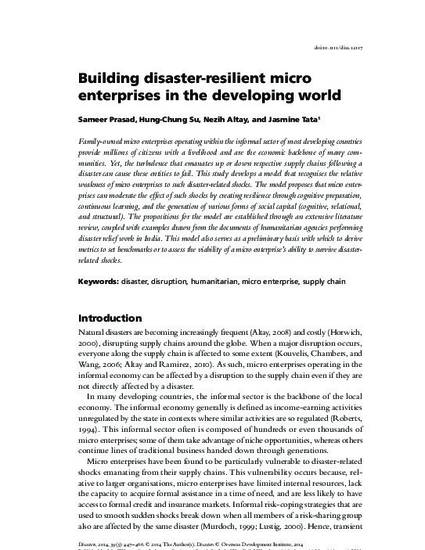
Article
Building Disaster Resilient Micro-enterprises in the Developing World
Disasters
(2015)
Abstract
Family-owned micro enterprises operating within the informal sector of most developing countries
provide millions of citizens with a livelihood and are the economic backbone of many communities.
Yet, the turbulence that emanates up or down respective supply chains following a disaster can cause these entities to fail. This study develops a model that recognises the relative weakness of micro enterprises to such disaster-related shocks. The model proposes that micro enterprises can moderate the effect of such shocks by creating resilience through cognitive preparation, continuous learning, and the generation of various forms of social capital (cognitive, relational, and structural). The propositions for the model are established through an extensive literature review, coupled with examples drawn from the documents of humanitarian agencies performing
disaster relief work in India. This model also serves as a preliminary basis with which to derive metrics to set benchmarks or to assess the viability of a micro enterprise’s ability to survive disaster related shocks.
Disciplines
Publication Date
2015
DOI
10.1111/disa.12117
Citation Information
Sameer Prasad, Hung-Chung Su, Nezih Altay and Jasmine Tata. "Building Disaster Resilient Micro-enterprises in the Developing World" Disasters Vol. 39 Iss. 3 (2015) p. 447 - 466 Available at: http://works.bepress.com/nezih_altay/24/
